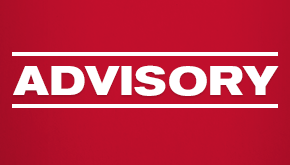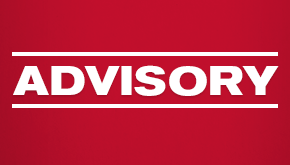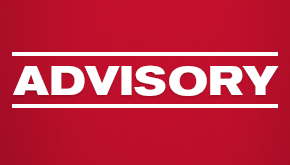Is Your Financial Institution Prepared for the Transition from LIBOR?
As we noted in our January Advisory, the Board of Governors of the Federal Reserve System (FRB), the Office of the Comptroller of the Currency (OCC) and the Federal Deposit Insurance Corporation (FDIC) are encouraging banks to transition away from U.S. dollar London Inter-Bank Offered Rate (LIBOR) as soon as possible. Failing to prepare for the planned sunset of LIBOR as a reference rate, which is currently scheduled for Dec. 31, 2021, could undermine financial stability, safety and soundness, and pose significant risks related to consumer protection, litigation and an institution’s reputation, according to the federal agencies’ joint statement on Nov. 30, 2020.
Since then, the FRB has issued an updated statement further emphasizing the importance of making progress towards a full transition away from LIBOR. In its March 9, 2021, letter, the FRB stated that firms not making such progress by Dec. 31, 2021, may be subject to supervisory action. The reason for this is clear; the risk to a financial institution in not making the transition is much too great. Michael Held, the General Counsel of the Federal Reserve Bank of New York, stated, “[w]hen you looked at the underlying contracts that used LIBOR, they didn’t provide very well for LIBOR simply disappearing… This is a DEFCON 1 litigation event if I’ve ever seen one.”
If the publication of one-week and two-month U.S. dollar LIBOR settings ceases as planned at the end of this year, financial institutions need to be sure their loan documents and other contracts either include robust fallback language or use an alternative reference rate altogether to avoid uncertainty and potential litigation. Even assuming LIBOR continues to be published beyond 2021, counterparties could assert that LIBOR has become “non-representative” and, on that basis, assert that the agreement is breached. Note that contracts with European parties could also be subject to the EU’s Benchmarks Regulation, which states that a benchmark must reference a certain number of underlying transactions. If the benchmark used in a contract does not meet that standard, the benchmark could be viewed as non-compliant and subject to manipulation.
Armstrong Teasdale has attorneys ready and able to guide you through your LIBOR transition process, from assessing your risk by conducting thorough document review and diligence, to creating a comprehensive transition plan, to implementing and executing that plan. Because this process can be time consuming, it is recommended that you begin as soon as possible to meet the Dec. 31, 2021, target date. If you have any questions or would like our team of attorneys to assist you in your transition, please reach out to us for more information.



































